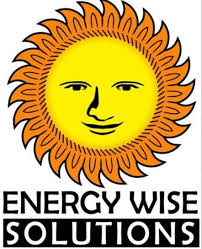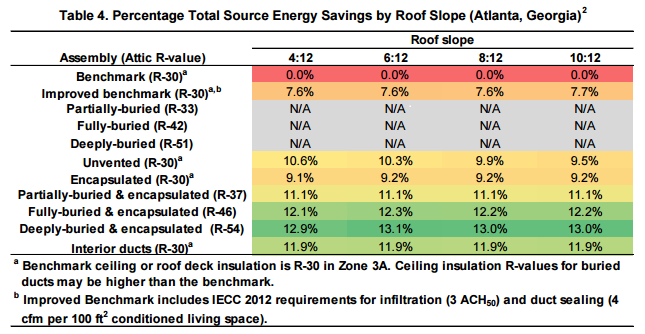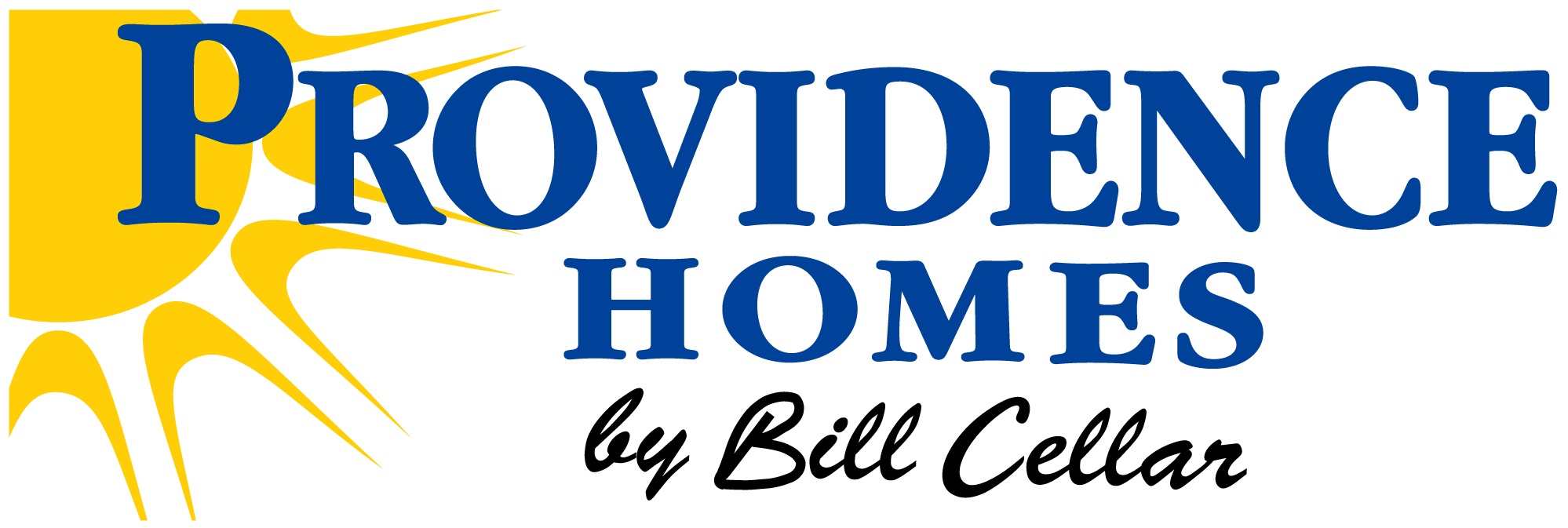The popularity of HERS-rated homes is clear, with 38 percent of all new homes getting HERS rated in 2015[1]. This figure is indicative of the importance of this energy performance marker to both builders and homebuyers and the growth trend is likely to continue. As builder adoption of the HERS score expands, how can HERS raters help builders make the transition from standard code-built homes to HERS-rated homes more efficiently?
Details »Insulation Institute Blog
When a new version of the International Energy Conservation Code (IECC) is completed there can be a good deal of lag time between publication and market impact. This is because states need to adopt the new code, a process which is measured in years, not weeks or months. However, there can be exceptions to this general rule. The 2018 IECC laid out a prescriptive path for the use of buried ducts with fibrous insulation in vented attics, for all climate zones. This new path was approved because it will allow builders to get much of the energy efficiency benefits of an unvented attic with closed cell spray foam by instead doing a traditional vented attic with the ducts buried in fibrous insulation. Data from DOE’s Building America program shows buried ducts can save more energy than a home with vented attics and ccSPF below the roof. In fact, the data from the DOE report excerpted below shows deeply buried ducts are 20-30% more efficient than an unvented attic system[i]. This code change lowers the cost of designing and building higher performance homes, but if it’s in the 2018 IECC, how can it have an impact now?
Details »Are builders missing the mark by not offering upgrade options for HERS-Scored homes?
Homebuyers like choices. Builders, ever eager to meet the desires of their buyers, typically offer a dizzying array of choices in products, finishes and designs to suit a wide variety of styles. Yet seemingly few builders offer consumers a choice in homes at varying energy efficiency targets. Is this a missed opportunity for builders in meeting the growing energy efficiency desires of buyers — an increasing number of whom self-identify as sustainable consumers? Perhaps.
Details »If you’re a home builder, you may already know that nine out of 10 home buyers today rely on the Internet as one of their primary research sources and 52 percent turn to the web as their first step in the home search, according “The Digital House Hunt” published by National Association of Realtors® Moreover, in the digital age, consumers use online review sites to rate their customer experience with a business, which is great, if that experience was favorable, but can be devastating to your corporate image if it wasn’t. A bad online reputation means fewer leads, less work and less revenue. More often than not, builders, contractors and other service providers have no control over the reviews that are posted online and are read by prospective home-buyers or renovators. As such, improving your online reputation has important implications for your company.
Details »Providence Homes has built more than 1,000 certified Energy Star homes – getting RESNET Grade One, a requirement of Energy Star Home Certification, using fiber glass batt insulation in each home. How does Providence do it, again and again when others say it’s difficult to achieve? One word: training.
Details »Vented attics have a number of benefits, but also one well known and pesky downside: it is very hard to perfectly air seal the ceiling plane given the number of penetrations you have. This results in energy losses but also, often times, pulling less hygienic air from the attic into the home itself. LG Squared, a firm out of Atlanta offering architecture, interior design, construction, HVAC design and building science consulting, found an interesting way around this problem and wrote about their approach in a recent blog. It involves continuous mineral wool insulation on the exterior, loose fill stone wool in the attic and a unique application for zip sheathing.
Details »We talk a lot about the importance of quality insulation installation, especially for batts. If the home is getting a HERS rating, Grade III installation means 5% of your insulated area is modeled as uninsulated. For those in California, failing to meet their definition of quality, a Quality Insulation Installation (QII), means wall cavity R-value is discounted 30% when modeled to determine energy code compliance. For Energy Star or DOE Zero Energy Ready homes it’s simple: get Grade I or you can’t be certified[1]. So, there appears to be market value for quality installation, but does that actually manifest itself in installer compensation? If so, how much is it worth?
Details »While solar homes have reached a milestone, superior envelope efficiency must be primary
U.S. Department of Energy (DOE) recently announced that the number of U.S. homes with solar panels has reached 1 million. As the primary on-site renewable power generation source, the expansion of rooftop solar photovoltaic (PV) means a much more distributed network of energy production and a more resilient energy grid. But is the expansion of solar overshadowing basic tenets of optimizing energy efficiency?
Details »Research shows that consumers want energy efficiency, but they’re motivated by comfort. As builders pursue energy efficient homes, they may need to shift how they promote the benefits of high performance homes to potential buyers, so that their messages resonate on an emotional level in an area that consumers really care about: comfort.
Details »Comfort callbacks are both timely and cost consuming, so here’s what you can do to reduce them.
The single largest financial investment that consumers will make in their lifetime is their home and a wealth of research finds that homeowners want their abodes to be energy efficient and comfortable. Both comfort and energy efficiency rely heavily on the delivery of consistent, quality construction, yet despite builder efforts, that goal falls short at times, leading to problems with home comfort. What can builders do to reduce comfort callbacks?
Details »








